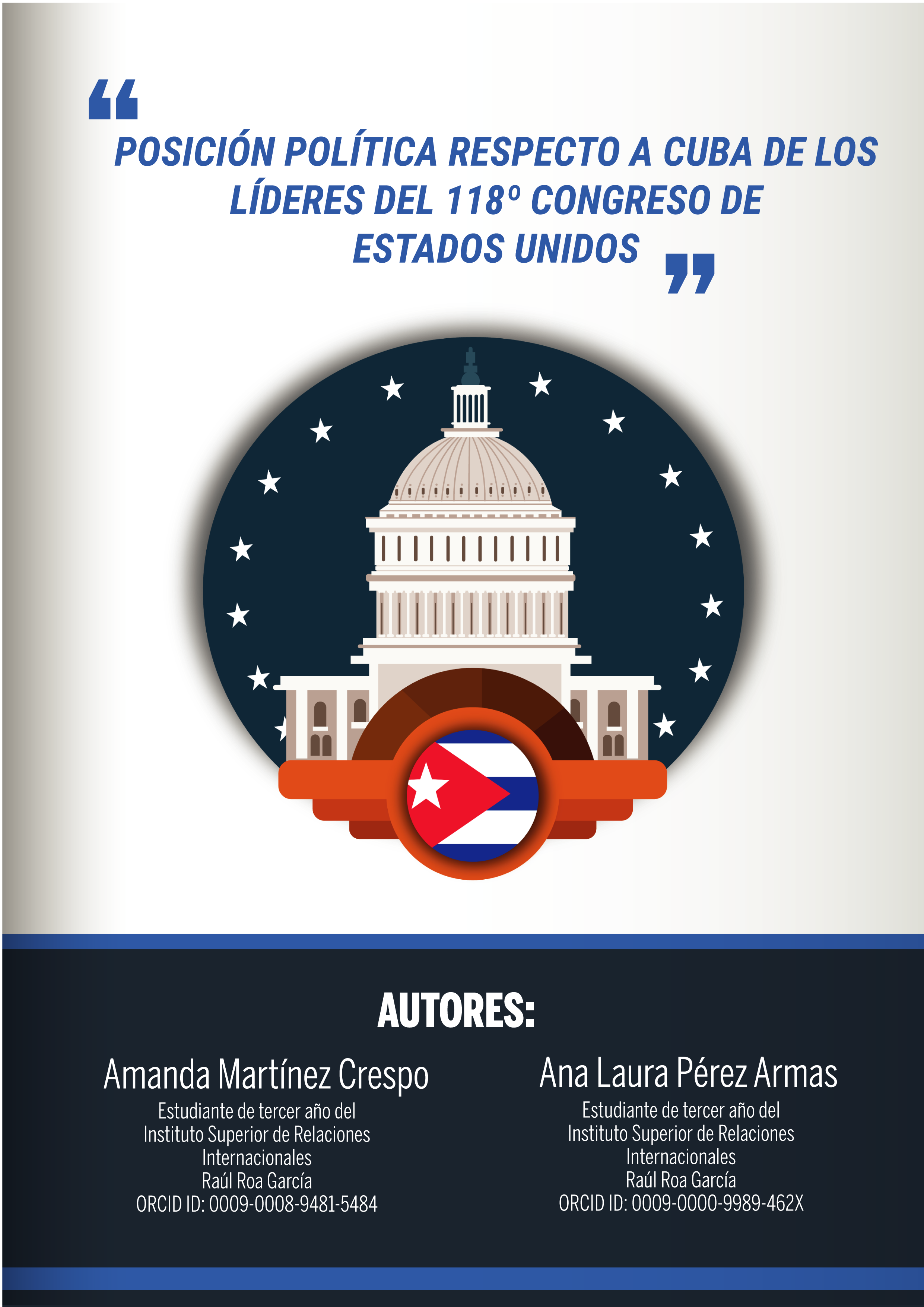Political position on Cuba of the leaders of the 118th U.S. Congress
Keywords:
United States, policy position toward Cuba, Congress, leadership, polarizationAbstract
Relations between Cuba and the United States, after 1959, have been influenced by the unwillingness of successive North American governments to accept Cuban independence and self-determination. The historical conflict that emanates from this situation has scheduled the policy of confrontation maintained by United States towards the Island; which, to a large extent, has its origin in Congress. In addition to members of the most important parties and anti-Cuban congressmen, leadership positions have great relevance in establishing policy towards the Cuban nation. In this sense, the present work is interested in characterizing the political position held towards Cuba by the leaders of the 118th Congress of the United States (current), taking into account the influence that this may have on the bilateral relationship between both states. From the synthesis of the main features of the position towards Cuba of the leaders of the 118th Congress, a marked polarization is confirmed as the main trend: while the Democratic leaders advocate a rapprochement in various sectors, the Republicans promote the implementation of new measures coercive measures that limit the socioecono- mic development of the Cuban state.
Downloads
References
CNN (2 de enero de 2023). Así es el nuevo Congreso en EE.UU. que servirá de 2023-2025. CNN. https://cnnespanol.cnn.com/2023/01/02/asi-se-vera-el-nuevo-congreso-eeuu-118-2023-2025-orix/
Delgado, D. G., et al (2021). El Congreso Federal de Estados Unidos y la política hacia Cuba. Universidad de La Habana, 292, Article 292. https://revistas.uh.cu/revuh/article/view/2189
Granma. (3 de enero de 2023). El 118o Congreso de EE. UU. marca comienzo de una nueva generación para los demócratas› Granma. https://www.granma.cu/mundo/2023-01-03/el-118-congreso-de-ee-uu-marca-comienzo-de-una-nueva-ge-neracion-para-los-democratas
House Republican Conference(s. f.). Chair Elise Stefanik | U.S. Representative.https://www.gop.gov/about/house-republican-conference-chair.htm
Speaker Mike Johnson. (s. f.). Meet Mike Johnson. https://www.speaker.gov/meet-mike-johnson
United States Senate. (s. f.). Sobre partidos y liderazgo. https://www.senate.gov/about/origins-foundations/parties-leadership.htm

Downloads
Published
How to Cite
Issue
Section
License
Copyright (c) 2024 Ad Hoc

This work is licensed under a Creative Commons Attribution-NonCommercial 4.0 International License.











